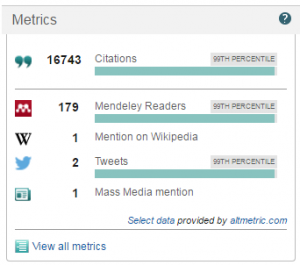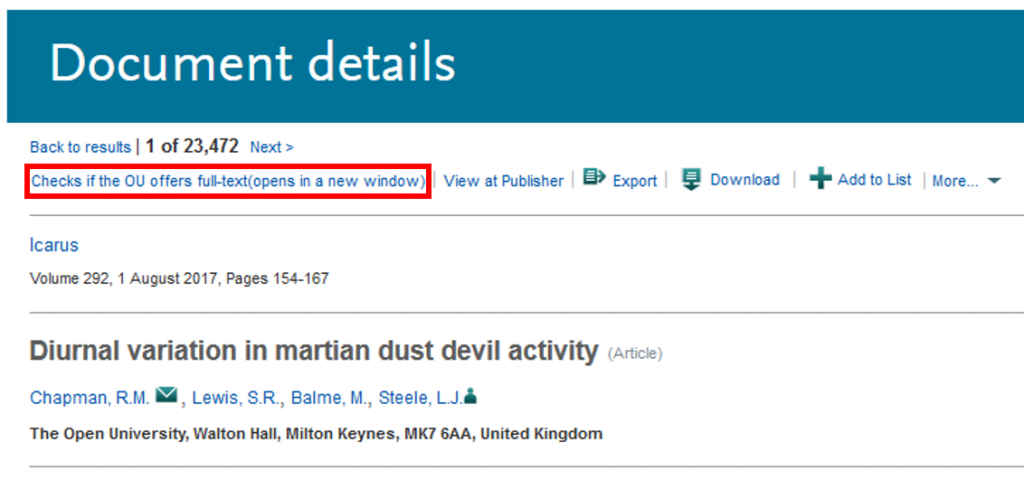Scopus is a large, multi-disciplinary abstract and citation database of peer-reviewed literature, including scientific journals, books and conference proceedings.
Here are just a few of the features that make it worth considering as a researcher:
It has a lot of content
Scopus boasts over 65 million records and claims to be the biggest database of its kind (we understand that Google Scholar and Microsoft Academic may index more records but that their content is not curated in the same way). This alone means it is worth investigating, if you want to discover literature for your research.
It doesn’t cover everything (no database does) and it’s subject coverage isn’t equal (there is more content in the sciences than in the arts for example) but it can still provide a good starting point for a lot of people . Learn more on the Scopus Content page.
It has powerful search features
As well as intuitive basic search features, Scopus allows you to search by author and affiliation (i.e. the university, company or other organisation that an author works for). It also has a potent advanced search feature, which allows for the constructions of complex searches – really useful if you are after something specific. Learn more on the Scopus Features page.
It is a source of bibliometrics
Scopus records the citations that publications get, as well as providing metrics on things like social media mentions, uses on Mendeley and Citeulike and mentions in the mass media.
You can easily see the metrics for an article by looking at the “Metrics” box on its “Document details” page:
Indeed, if metrics are your bag, than Scopus is one of the main sources worth investigating. You can get more general information on our bibliometrics page.
However, as an abstract and citation database, Scopus usually requires you to link out to access the full text of articles. Indeed, there is no guarantee that The OU will subscribe to the full text – use the “Checks if the OU offers full text” link for an article (highlighted red below) to find out:
You can log into Scopus (OU student or staff credentials required) to investigate for yourself.



